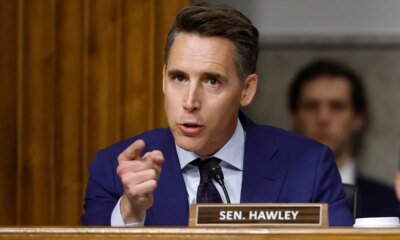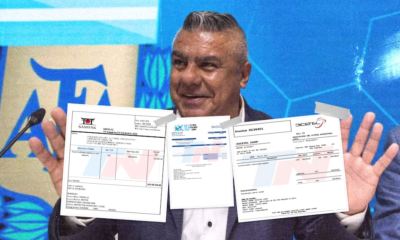INTERNACIONAL
White House reacts to Dem whistleblower’s ‘bombshell’ claim Schiff leaked to hit Trump
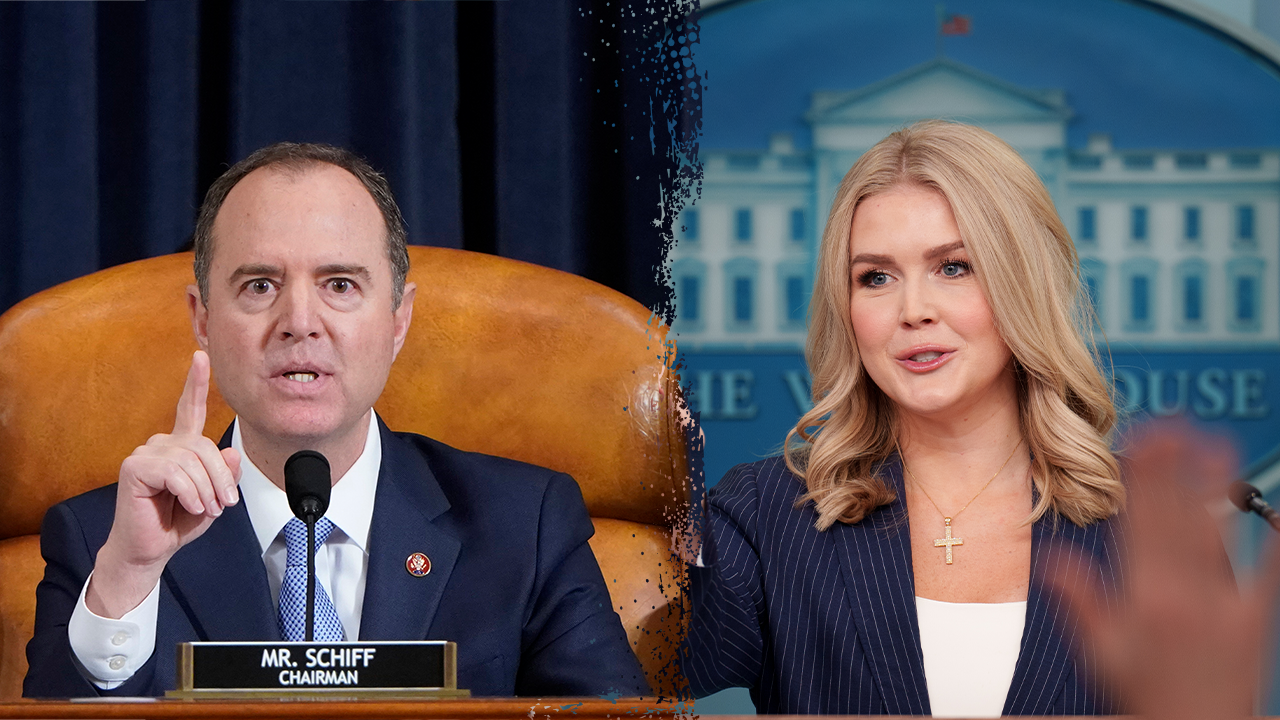
NEWYou can now listen to Fox News articles!
White House press secretary Karoline Leavitt called the recent release of Democratic whistleblower testimony claiming Democratic Sen. Adam Schiff approved leaking classified information in order to discredit President Donald Trump during the Russiagate probe a «bombshell» Tuesday afternoon.
«This is obviously a bombshell whistleblower report,» Leavitt said at a Tuesday White House press briefing. «Hopefully more people in this room will cover it as such.»
«I understand Kash Patel, last night, declassified a 302 FBI document showing that a whistleblower, who is a Democrat, a career intelligence officer who worked for Democrats on the House Intel Committee for more than a decade, repeatedly warned the FBI in 2017 that then-Rep. Adam Schiff had approved leaking classified information to smear then President Donald Trump over the Russiagate scandal,» she added.
Schiff served in the U.S. House representing California for decades before he was elected to the U.S. Senate in 2024.
Trump and Schiff have long been political foes, which was underscored during Trump’s first administration when Schiff served as the lead House manager during the first impeachment trial against Trump in 2020, and when Schiff repeatedly promoted claims that Trump’s 2016 campaign colluded with Russia.
TRUMP-FOE ADAM SCHIFF DISMISSES TULSI GABBARD’S DECLASSIFIED RUSSIA COLLUSION INTELLIGENCE AS ‘DISHONEST’
Karoline Leavitt held a press conference Aug. 12, 2025, where she responded to questions about a «bombshell» whistleblower’s claim involving Sen. Adam Schiff. (Evelyn Hockstein/Reuters)
On Monday evening, reports spread that a whistleblower who reportedly worked for Democrats on the House Intelligence Committee for more than 10 years told the FBI in 2017 that the Democrat lawmaker green-lit leaking classified information on Trump that allegedly «would be used to indict President TRUMP,» according to the report.
«In this meeting, SCHIFF stated the group would leak classified information which was derogatory to President of the United States DONALD J. TRUMP. SCHIFF stated the information would be used to indict President TRUMP.»
The whistleblower «stated this would be illegal and, upon hearing his concerns, unnamed members of the meeting reassured that they would not be caught leaking classified information,» the report added.
KAROLINE LEAVITT EXCORIATES MEDIA FOR PERPETUATING ‘COMPLETE SCAM’ OF RUSSIA HOAX
Leavitt continued Tuesday by reading a quote from FBI Director Kash Patel that «for years certain officials used their positions to selectively leak classified information to shape political narratives.»
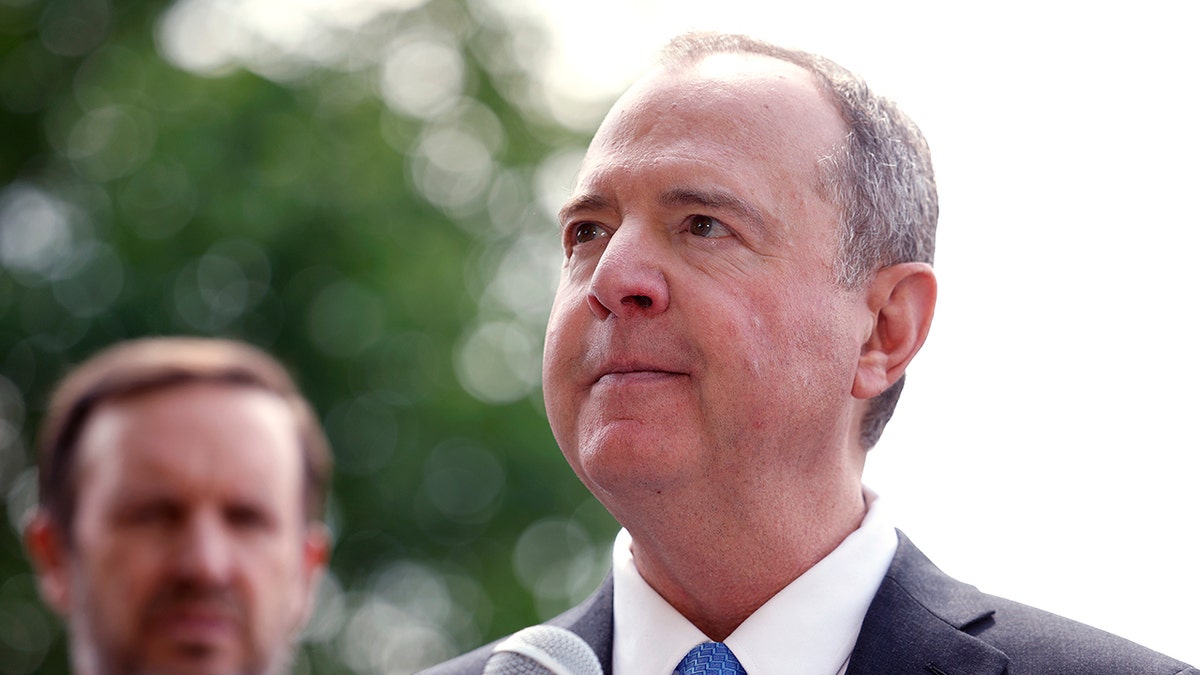
Sen. Adam Schiff is facing scrutiny following the release of whistleblower testimony claiming Schiff greenlit the leak of classified information surrounding President Donald Trump. (Kevin Dietsch/Getty Images)
«It was all done with one purpose: to weaponize intelligence and law enforcement for political gain,» Leavitt said, quoting Patel. «Those abuses eroded public trust in our institutions. The FBI will now lead the charge with our partners at DOJ, and Congress will have the chance to uncover how political power may have been weaponized and to restore accountability.»
TRUMP INVOKES RUSSIA COLLUSION HOAX WHILE CALLING FOR LONGTIME FOE SCHIFF TO FACE JAIL TIME
Leavitt added, when asked if Trump plans to investigate Schiff over the matter, doubled down that Trump «has already said he wants to see Adam Schiff held accountable for the countless lies he told the American people in relation to the Russiagate scandal.»
Schiff’s office hit back against the report in comment to Fox Digital Tuesday afternoon, claiming it was a «smear» that is «absolutely and categorically false.»
«Kash Patel’s latest smear against Senator Schiff is absolutely and categorically false, and is just the latest in a series of defamatory attacks from the President and his allies meant to distract from their plummeting poll numbers and the Epstein files scandal,» a spokesperson for Schiff said.
«These baseless smears are based on allegations that were found to be not reliable, not credible, and unsubstantiated from a disgruntled former staffer who was fired by the House Intelligence Committee for cause in early 2017, including for harassment and potentially compromising activity on official travel for the Committee. Even Trump’s own Justice Department and an independent inspector general found this individual to not be credible, have «little support for their contentions» and was of «unknown reliability,» and concluded that his accusations against Members of Congress and congressional staff «were not ultimately substantiated,’» the spox continued.
Schiff is also currently facing a criminal investigation for alleged mortgage fraud stretching back to the early 2000s — a case where he has denied wrongdoing.
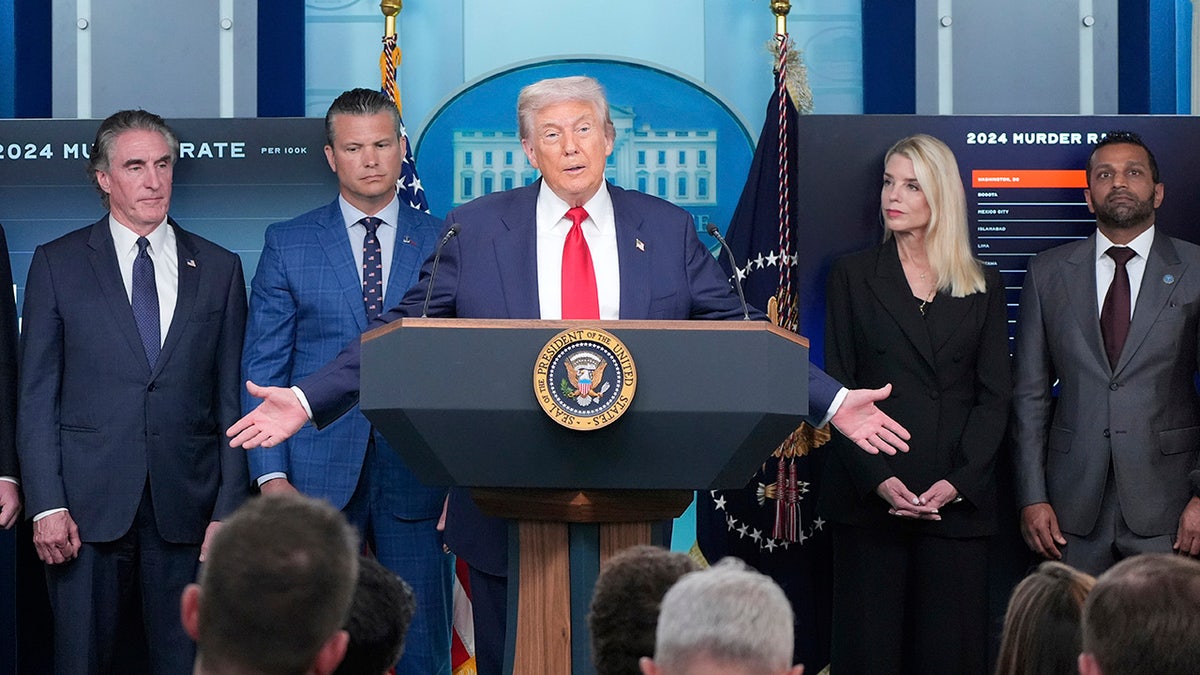
President Donald Trump has repeatedly called for longtime political foe Sen. Adam Schiff to be held to account. (AP/Alex Brandon)
The release of the whistleblower’s account follows Director of National Intelligence Tulsi Gabbard bombshell claims in July that Obama-era officials «manufactured and politicized intelligence» to create the narrative that Russia was attempting to influence the 2016 presidential election.
CLICK HERE TO GET THE FOX NEWS APP
Gabbard released unclassified documents in July that reportedly show «overwhelming evidence» that then–President Barack Obama and his national security team laid the groundwork for what would be the yearslong Trump–Russia collusion probe after Trump’s election win against former Secretary of State Hillary Clinton in 2016.
donald trump,adam schiff,karoline leavitt,russia
INTERNACIONAL
Democrats eye narrow path to capture Senate majority, but one wrong move could sink them

NEWYou can now listen to Fox News articles!
Senate Democrats are publicly laying out their roadmap to reclaim the chamber in the 2026 midterm elections, arguing that President Donald Trump’s agenda and an expanded battleground map give them multiple paths back to the majority.
Charging that «President Trump is creating a toxic agenda that’s harming people,» Democratic Senatorial Campaign Committee (DSCC) Chair Sen. Kirsten Gillibrand told Fox News Digital she’s «optimistic that we have a shot to take back the majority.»
Democrats need a net gain of four seats after Senate Republicans flipped four seats in the 2024 cycle to secure a 53-47 majority. But party leaders say recent Democratic overperformances in the 2025 elections, combined with GOP-held seats now in play, have widened the map far beyond initial expectations — even as Republicans insist the political environment still favors them.
REPUBLICAN SENATORS, IN FIRST 2026 ROAD TRIP, TOUT BORDER SECURITY, TAX CUTS
An exterior view of the Senate side of the U.S. Capitol, on Jan. 12, 2026. (Paul Steinhauser/Fox News)
A DSCC memo titled «Senate Democrats Carve Out Path to Senate Majority in 2026,» which was released on Wednesday, highlights that «at the start of 2025, Democrats had two clear offensive targets: Maine and North Carolina. Over the past year, the DSCC expanded the battleground map significantly and created multiple potential paths to the majority.»
Gillibrand charged that Trump «is creating this massive backlash because of his bad and hurtful and harmful agenda,» which she said «adds more to the map.»
Senate Minority Leader Chuck Schumer, the longtime party leader in the chamber, agreed, telling The Associated Press, «it’s a much wider path than the skeptics think, and a much wider path than it was three months ago and certainly a year ago.»
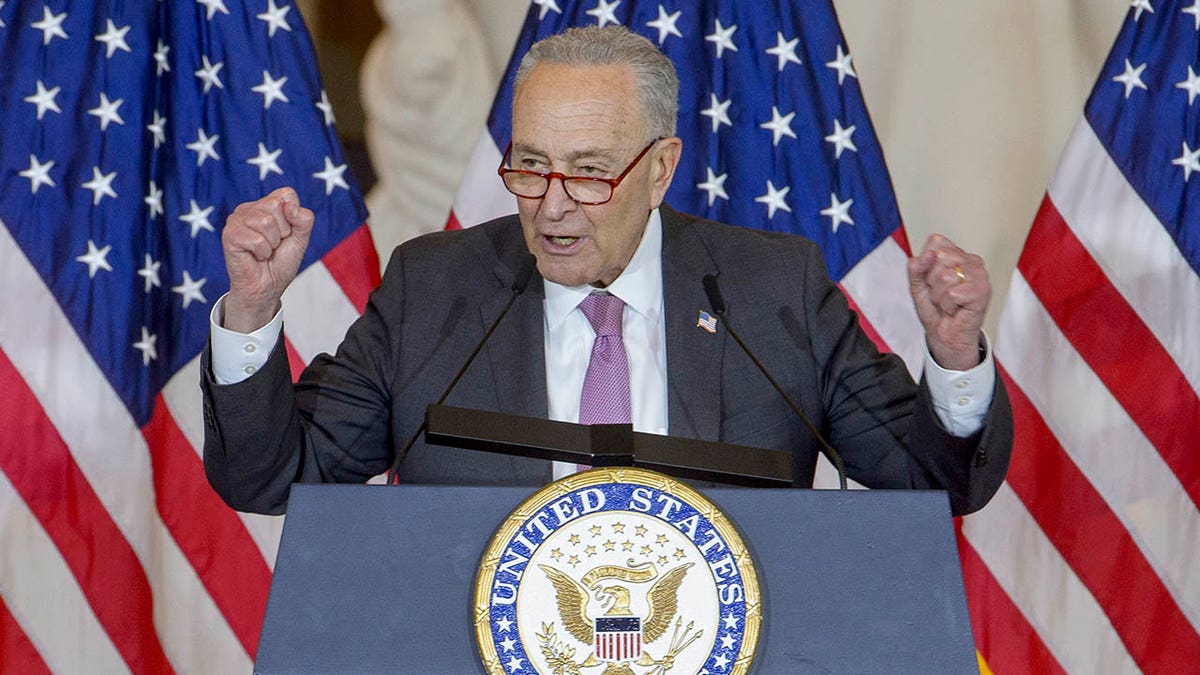
Senate Minority Leader Chuck Schumer of New York, the top Democrat in the chamber, is optimistic about his party’s chances of winning back the majority in the 2026 midterm elections. (Rod Lamkey, Jr./AP Photo)
Gillibrand, in her interview with Fox News Digital, and the DSCC in its memo, touted the party’s top recruits for three GOP-held seats they’re working to flip: former three-term Sen. Sherrod Brown of Ohio, former two-term North Carolina Gov. Roy Cooper and two-term Maine Gov. Janet Mills.
And Gillibrand highlighted the DSCC’s most recent recruiting success, Monday’s landing of former Rep. Mary Peltola, who was twice elected statewide to Alaska’s at-large House seat, which could potentially put the red-leaning state in play this year.
The DSCC also has its eyes on battleground turned red state Iowa, where there’s an open GOP-held seat, and Texas, where longtime Republican Sen. John Cornyn is trying to survive a competitive and combustible primary as he seeks re-election.
But Democrats are also facing crowded Senate primaries.
4 KEY SENATE SEATS REPUBLICANS AIM TO FLIP IN 2026 MIDTERMS TO EXPAND THEIR MAJORITY
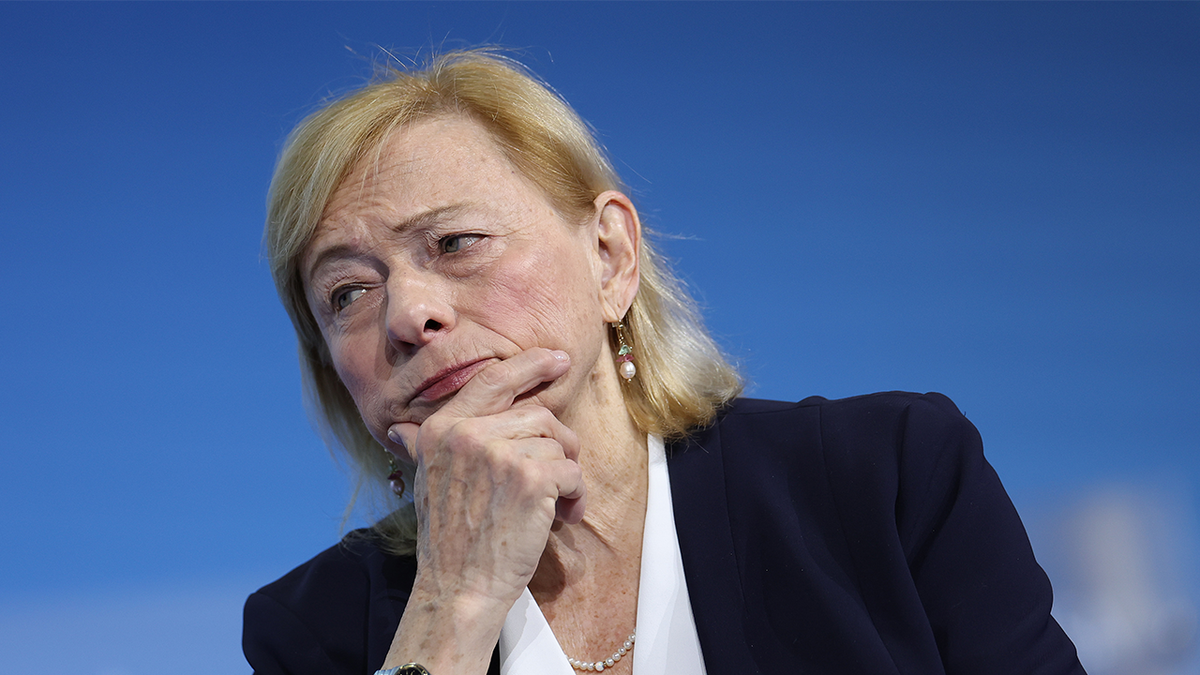
Democrat Gov. Janet Mills announced that she will run for Maine’s Senate seat in October 2024. (Kevin Dietsch/Getty Images)
Mills is facing a formidable rival on the left in Graham Platner, an oyster farmer and military veteran who is backed by progressive champion Sen. Bernie Sanders.
There are also competitive Democratic Senate primaries in Texas, Iowa and Michigan, where Democrats are playing defense as they aim to hold the seat held by retiring two-term Sen. Gary Peters, Gillibrand’s predecessor at the DSCC. Republicans in the Great Lakes State are mostly rallying behind former Rep. Mike Rogers, who’s making a second straight bid for the Senate.
Asked whether her party’s Senate primaries will impede success in November, a confident Gillibrand said, «I think we will have the best candidates in each one of these states.»
While the party in power — clearly the Republicans right now — traditionally faces political headwinds in the midterm elections, and with Democrats riding a wave of momentum following a slew of ballot box victories in 2025, a current read of the 2026 map indicates the GOP may be able to go on offense in some key states.
Gillibrand’s counterpart, National Republican Senatorial Committee Chair Sen. Tim Scott of South Carolina, told Fox News Digital last month that «54 is clearly within our grasp right now, but with a little bit of luck, 55 is on our side.»
GOP SENATE CAMPAIGN CHIEF AIMS TO EXPAND 2026 MAP IN THIS BLUE-LEANING STATE
Asked about Scott’s aspirations to pick up one or two seats, Gillibrand quickly responded, «No chance.»
«I’m very optimistic that with the quality of candidates that we have, with the recruiting failures and the poor candidates the Republicans have, and this very harmful climate that President Trump is creating, we have all the makings of a blue wave,» Gillibrand emphasized.
NRSC’s communications director, Joanna Rodriguez, argued that the «Democrats’ battleground map is littered with failed career politicians no longer aligned with the values of their states and messy, nasty primaries that will leave Schumer with a majority of candidates that have all pledged to vote him out.»
Democrats are also playing defense in blue-leaning Minnesota, where Sen. Tina Smith is retiring, and the party faces another competitive primary, and in swing state New Hampshire, where former governor and longtime Sen. Jeanne Shaheen is retiring.
And in Georgia, Republicans see first-term Sen. Jon Ossoff as the most vulnerable Democrat up for re-election this cycle. But a nasty three-way GOP Senate primary may hurt the Republicans’ chances of flipping the seat in the crucial southeastern battleground.
AFFORDABILITY BOOSTS DEMOCRATS AT BALLOT BOX IN 2025 AFTER INFLATION HELPED TRUMP AND GOP SOAR IN 2024
Deep concerns over inflation boosted Trump and Republicans to sweeping victories at the ballot box in 2024, as they won back the White House and Senate and kept their House majority.
But Democrats say their decisive victories in November’s elections were fueled by their laser focus on affordability.
Don’t expect any letup in Democrats’ cost-of-living messaging.

President Donald Trump speaks on inflation at Mount Airy Casino Resort in Mount Pocono, Pennsylvania, on Tuesday, Dec. 9, 2025. (Adam Gray/Bloomberg/Getty Images)
«Candidates that connect with their voters, candidates that are listening to the concerns that their constituents have, those are the candidates that win elections, and we saw Democrats do that across the board in 2025,» Gillibrand said. «Candidates that understand what people are going through are the ones that connect with voters, and that’s the kind of candidates we are marshaling in this election, and we are supporting this election.»
But Scott predicts the tide will turn for Republicans on the affordability issue.
CLICK HERE TO DOWNLOAD THE FOX NEWS APP
«I’ve said 2026 is a year of affordability, and the great news is President Trump has been producing time and time again,» the NRSC chair touted.
Pointing to the tax cut provisions in the GOP’s sweeping domestic policy measure signed into law this past summer by Trump, Scott said «2026 is shaping up to be the year where Donald Trump’s activities, his actions, the legislation we’ve passed, shows up for the American voter. And consumers all across the country will see a more affordable economy because of President Trump and the Senate majority and the House majority in the hands of the Republican Party.»
elections,democrats elections,midterm elections,senate elections,democratic party,republicans elections,campaigning
INTERNACIONAL
Some US military personnel told to leave Middle East bases, US official confirms

NEWYou can now listen to Fox News articles!
Some U.S. military personnel have been told to leave bases in the Middle East, Fox News has learned.
The order comes amid widespread protests in Iran and threats to intervene from President Donald Trump. Qatar’s government confirmed that some U.S. personnel had departed from the Al Udeid Air Base, America’s largest military base in the Middle East.
Qatar’s International Media Office said the steps were part of broader efforts to safeguard the security of citizens and residents and to protect critical infrastructure and military facilities, adding that any further developments would be announced through official channels.
Trump said on Tuesday that he cut off meetings with the Iranian regime, saying there would be no contact until the government stops killing protesters. He also urged the Iranian people to «take over» the country.
LIZ PEEK: TRUMP IS PUTTING AMERICA FIRST BY BACKING IRAN INTO A CORNER
Some U.S. military personnel have been told to leave military bases in the Middle East. (AP Photo/Chris Seward)
«Iranian Patriots, KEEP PROTESTING – TAKE OVER YOUR INSTITUTIONS!» Trump wrote on Truth Social. «Save the names of the killers and abusers. They will pay a big price.»
«I have canceled all meetings with Iranian Officials until the senseless killing of protesters STOPS. HELP IS ON ITS WAY,» he added.
Trump has repeatedly suggested that the U.S. may intervene against Ayatollah Ali Khamenei’s regime, but he has not offered details of any plans.
NETANYAHU AND RUBIO DISCUSS US MILITARY INTERVENTION IN IRAN AMID ONGOING NATIONWIDE PROTESTS: REPORT
Reports say Iranian authorities have killed more than 2,500 people, though the actual total could be much higher.

People gather during a protest on January 8, 2026, in Tehran, Iran. Demonstrations have been ongoing since December, triggered by soaring inflation and the collapse of the rial, and have expanded into broader demands for political change. (Anonymous/Getty Images)
The White House confirmed on Monday that Trump was weighing whether to bomb Iran in reaction to the crackdown.
IRAN’S ‘DISTINCTIVE’ DRONE DEPLOYMENT SEES DEATH TOLL SOAR AMID VIOLENT PROTESTS
White House press secretary Karoline Leavitt told reporters that diplomacy remains Trump’s first option, but that the president «has shown he’s unafraid to use military options if and when he deems necessary.»
«He certainly doesn’t want to see people being killed in the streets of Tehran. And unfortunately that’s something we are seeing right now,» she added.

President Donald Trump has threatened to intervene against the Iranian regime. (Alex Brandon/AP Photo)
Iranian authorities have used deadly force against anti-regime protesters and have cut off public internet access in an effort to stop images and video from spreading across the globe.
CLICK HERE TO DOWNLOAD THE FOX NEWS APP
The protests represent the highest level of unrest Iran has seen since nationwide protests against the death of Mahsa Amini at the hands of morality police in 2022.
Reuters contributed to this report.
middle east,iran,world
INTERNACIONAL
Tensión máxima en Medio Oriente: EE.UU. evacúa a militares de su base en Qatar tras amenazas de Irán

Parte del personal en la base aérea de Al Udeid, el principal enclave militar de Estados Unidos en Qatar, recibió órdenes de evacuar antes del miércoles a la noche. Así lo reveló un funcionario norteamericano, que pidió mantener el anonimato por tratarse de un tema sensible.
La medida, según describió la fuente, es “de precaución” y se tomó luego de que un alto funcionario iraní mencionara el ataque con misiles que Irán lanzó contra esa base en junio, en represalia por bombardeos estadounidenses a instalaciones nucleares iraníes.
Leé también Irán: los escenarios que se abren tras las amenazas de Trump y la sangrienta represión de las protestas
El funcionario evitó dar detalles sobre si la evacuación es obligatoria u opcional, cuántas personas están involucradas o si afecta a militares, civiles o ambos. Argumentó que la seguridad operativa es prioritaria y que no se pueden brindar precisiones en este contexto.
Qatar confirmó la evacuación y habló de “tensiones regionales”
El gobierno de Qatar reconoció que la evacuación se lleva adelante “en respuesta a las tensiones regionales actuales”. En un comunicado oficial, la oficina de prensa aseguró que el país “continúa implementando todas las medidas necesarias para salvaguardar la seguridad y protección de sus ciudadanos y residentes como prioridad principal, incluidas acciones relacionadas con la protección de infraestructura crítica e instalaciones militares”.
Leé también Trump apoyó las protestas en Irán y les pidió a los manifestantes que “tomen el control de las instituciones”
Por su parte, el Pentágono y el Departamento de Estado de EE.UU. evitaron hacer comentarios sobre la situación o sobre posibles alertas de seguridad para diplomáticos y civiles estadounidenses en Qatar. En junio, la embajada norteamericana en Doha solo había emitido un aviso de “refugio en el lugar”, pero no llegó a recomendar la evacuación.
Irán redobla la presión y recuerda el ataque a la base
La tensión escaló después de que Ali Shamkhani, asesor del líder supremo iraní, el ayatolá Alí Jamenei, publicara en la red social X: “El presidente de Estados Unidos, que habla repetidamente sobre la agresión inútil contra las instalaciones nucleares de Irán, haría bien en mencionar también la destrucción de la base estadounidense en Al-Udeid por misiles iraníes. Sin duda ayudaría a crear una comprensión real de la voluntad y capacidad de Irán para responder a cualquier agresión”.
El ataque iraní a la base de Al Udeid en junio, que alberga a miles de militares estadounidenses, marcó un punto de inflexión en la región. Según el Comando Central del ejército de EE.UU., ningún personal estadounidense o qatarí resultó herido, aunque un oficial militar qatarí reconoció que uno de los 19 misiles disparados no fue interceptado y golpeó la base. El entonces presidente Donald Trump minimizó el hecho y aseguró que “apenas se causaron daños”.
Leé también Un manifestante irrumpió en la embajada de Irán en Londres y retiró la bandera oficial durante una protesta
La situación se da mientras continúan las protestas antigubernamentales en Irán y Trump advierte que está dispuesto a tomar acciones militares en apoyo a los manifestantes. En este clima, funcionarios iraníes y qataríes mantuvieron contactos en las últimas horas. El secretario del Consejo Supremo de Seguridad Nacional de Irán, Ali Larijani, habló por teléfono con el primer ministro qatarí, jeque Mohammed bin Abdulrahman Al Thani, quien reafirmó el respaldo de Qatar a “todos los esfuerzos de desescalada y soluciones pacíficas para mejorar la seguridad y estabilidad en la región”.
Qatar también quedó en el centro de otras tensiones regionales, como el ataque israelí en septiembre a la sede del liderazgo político de Hamás en Doha, mientras se discutía una propuesta de alto al fuego para Gaza.
La evacuación en la base de Al Udeid refleja el delicado equilibrio que enfrenta Qatar, atrapado entre las amenazas cruzadas de Irán, Estados Unidos e Israel, y la necesidad de proteger a su población y a las fuerzas extranjeras que operan en su territorio.
Estados Unidos, Irán, Qatar

 CHIMENTOS2 días ago
CHIMENTOS2 días agoLa triste despedida de Jorge “Corcho” Rodríguez a Pía, su asistente por 30 años: “Gracias por tu amor”

 POLITICA1 día ago
POLITICA1 día agoLa AFA giró US$8 millones a cinco empresas en Miami que ya no existen: un argentino disolvió hace seis días una firma clave

 POLITICA2 días ago
POLITICA2 días agoIncendios en Chubut: el fiscal general aseguró que el responsable podría recibir hasta 20 años de prisión









